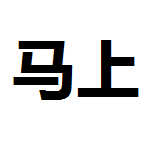Chinese word combinations
 As someone who is currently learning Mandarin, I find the language very challenging – both to speak and to write – as well as extremely quirky. It is, however, a very satisfying language to learn, as it’s almost impossible to learn to speak Chinese without learning a little about Chinese culture.
As someone who is currently learning Mandarin, I find the language very challenging – both to speak and to write – as well as extremely quirky. It is, however, a very satisfying language to learn, as it’s almost impossible to learn to speak Chinese without learning a little about Chinese culture.
One element I find especially interesting is the way Chinese combines words to form new words or phrases. A much earlier post touches on this, discussing how Chinese has to combine ideas to give names to modern concepts like the computer:
The age of the Chinese language means that it has to adapt itself to new concepts and ideas. For example, Mandarin for ‘train’ is 火车 (huǒ chē), which literally means “fire car”. Likewise, a computer – 电脑 (diànnǎo) – is an “electric brain”; and a helicopter – 直升机 (zhí shēng jī) – is a “straight-rising machine”.
However, Chinese also mixes together everyday words to bring a new meaning to the combination. Two good examples of this actually concern combining words with opposite meanings: zuǒyòu (左右) and dōngxi (东西).
On their own, zuǒ (左) and yòu (右) mean “left” and “right” respectively. Put them together, however, and you get the word for ‘about’ or ‘around’. For example, when Chinese people ask me how long I’ve been living in China, I reply “Yī nián zuǒyòu” (一年左右) – “about one year”.
Onto the second example – the individual words dōng (东) and xī (西) mean “east” and “west”, but together they form a multi-purpose word for ‘thing’. My first few months in China were plagued with me pointing at food and other objects in shops, and not knowing the word for that object, asking the shopkeeper “Zhège dōngxi shì duōshǎo qián?” (这个东西是多少钱) – “how much is this thing?”. It’s a word that I still often use, and so do most Chinese people.
The strange thing is, both of these combinations make a certain amount of sense. Sure, it’s not as literal as saying hónglǜdēng (红绿灯) for “traffic light” (literally “red green light”), but there’s a certain degree of poetry to the words.
Recently, having started learning Chinese characters, a few realizations have hit me. One of these was the word mǎshàng, which means “soon”. I never gave much thought to the word until I learned the characters: 马上. The second character, shàng (上) is a very common character with many meanings, but usually means ‘on’ or ‘next to’ (for example, the city in which I live, Shànghǎi (上海), means “next to the sea”). The first character, mǎ (马), means “horse” – so the word literally means “on a horse”.
Presumably, in ancient China, since horse was the fastest method of travel, anybody on a horse would be arriving soon. I don’t know if that’s the actual etymology, but I really want it to be!
